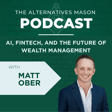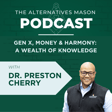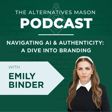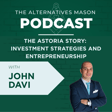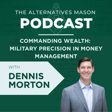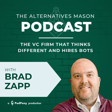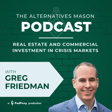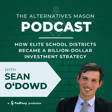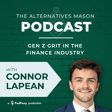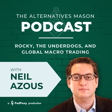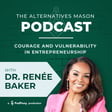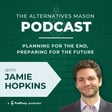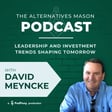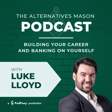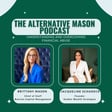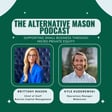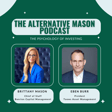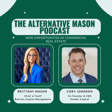
The Alternatives Mason: Building Alts Knowledge Brick by Brick | Episode 15 | Alternatives Simplified Featuring Bobbi Ivanova
Welcome to The Alternatives Mason: Building Alts Knowledge Brick by Brick. Banrion Capital Management uses technology to help independent advisors scale and educate themselves on alternative investments. Since education is such a big piece of the Banrion mission and business, we are excited to kick off this series to dive into the nits and grits of the alternatives space. Episode 15 "Alternatives Simplified" features Bobbi Ivanova, Managing Director & Investment Strategist with Simplify Asset Management.
Bobbi started her career as a risk manager at Goldman Sachs focusing on OTC FX and Interest rates instruments within the interbank channel. She then pivoted to the asset management arm of Goldman Sachs distributing investment strategies across various institutional investors including consultants, corporates, pension plans, and asset managers. Bobbi was overseeing 30bn in AUM on behalf of Goldman Sachs institutional clients. Afterward, she moved to New Zealand to pursue her MBA degree and was a Business Development Manager for a rapidly growing startup TAMP working closely with financial advisors. Bobbi holds an MBA from the University of Canterbury, a bachelor's degree from International Business School, and is a CFA and CAIA charterholder. Bobbi and her husband spend the weekends with their two boys enjoying the great outdoor activities in Utah.
Connect with Bobbi
Learn More About Simplify Asset Management: Simplify Asset Management
Follow Simplify on 𝕏: @SimplifyAsstMgt
Check out Simplify's YouTube Channel: @SimplifyAssetManagement
Connect with Bobbi on LinkedIn: Bobbi Ivanova
Connect with Bobbi on 𝕏: @ivanovabobbi
Learn More About Banrion: Banrion Capital Management
Follow Brittany on 𝕏: @Brittany_Mason
Follow Banrion on 𝕏: @Banrion_Capital
Subscribe to our YouTube Channel: @BanrionCapital
Important Disclosures:
The opinions expressed on the “The Alternative Mason Podcast” are for general informational purposes only and are not intended to provide specific advice or recommendations for any individual or on any specific security.
It is only intended to provide education about the financial industry. To determine which investments may be appropriate for you, consult your financial advisor prior to investing. Any past performance discussed during this program is no guarantee of future results.
The guests featured on this program are participants on Banrion Capital Management’s platform. As such Banrion may receive payment for their participation as a platform partner.
Any indices referenced for comparison are unmanaged and cannot be invested into directly. As always please remember investing involves risk and possible loss of principal capital; please seek advice from a licensed professional.
Investments are not FDIC-insured, nor are they deposits of or guaranteed by a bank or any other entity, so they may lose value.
Investors should carefully consider investment objectives, risks, charges and expenses. This and other important information is contained in the fund prospectuses and summary pros
